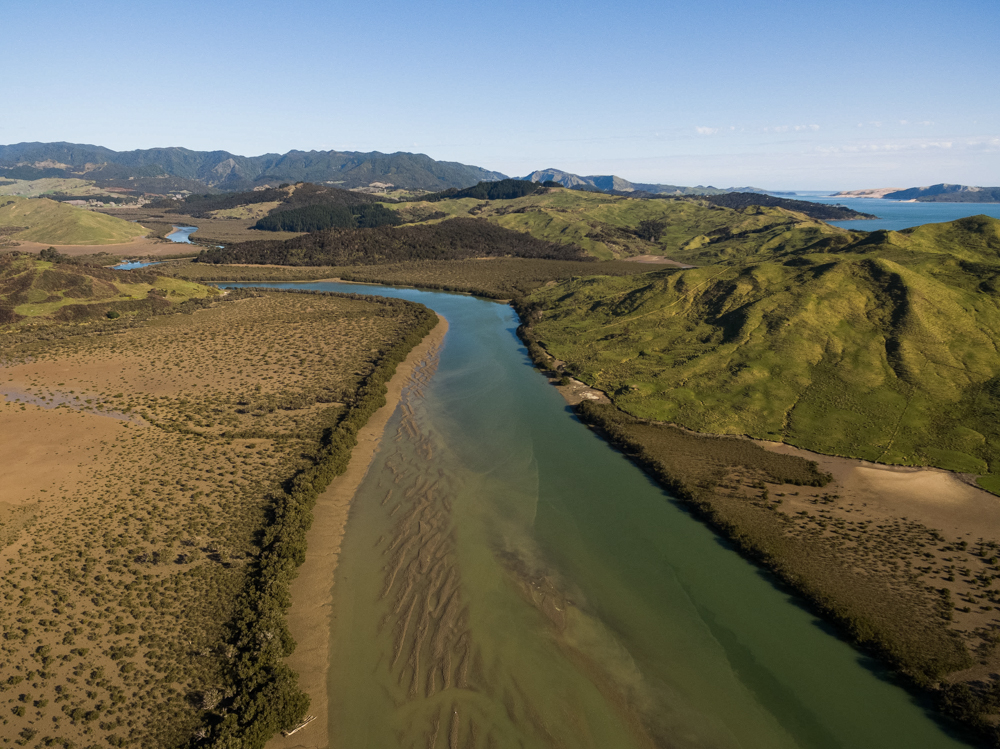Local water done well
Our Water, Our Future – What is Local Water Done Well.
Far North District Council, alongside councils across Aotearoa, is considering how best to manage water services under the Government’s new Local Water Done Well policy.
Local Water Done Well replaces the previous Three Waters reform and places the future of drinking water, wastewater, and stormwater services back in the hands of local councils and their communities. The focus is on ensuring that future water service delivery is financially sustainable, meets regulatory standards, and supports growth and development.
What does this mean for the Far North?
We have a proud history of working with our communities to deliver water services, but like many councils across the country, we face the challenge of ageing infrastructure, rising costs, and increasing regulatory requirements.
Under Local Water Done Well, councils must demonstrate how they will:
- Meet all relevant economic, environmental and water-quality regulatory requirements
- Ensure the financial sustainability of water services
- Support housing and urban growth aligned with the Long Term Plans
- Explore collaboration opportunities with neighbouring councils
What options were considered?
Between 4 April to 4 May 2025, we sought feedback from the community on two main options:
Te pēke | The bag
represents the strengthened in-house model, where services stay with the council, tightly managed and locally controlled.
Te kete | The basket
represents the three-council water services organisation, where resources and responsibility are shared for greater efficiency and wider collaboration with Kaipara and Whangārei district councils.
What did the community say?
We received 116 submissions, ranging from short comments to detailed, multi page responses.
In summary 68% of respondents favoured keeping water services in-house. Those favouring an in-house model generally wanted to keep decision making local, whereas those wanting a regional CCO cited ‘economies of scale’ as their primary reason.
What happens next?
Recognising shared challenges across the region, the Far North, Kaipara and Whangārei District Councils have established the Northland Water Services Elected Member Working Group, chaired by Whangārei Mayor Vince Cocurullo with three elected members from each council. The Far North is represented on the Working Group by Kahika Moko Tepania, Cr Ann Court and Cr John Vujcich and is supported by staff, Department of Internal Affairs representatives, and an independent technical advisor.
This group met for the first time on the 26 May 2025. Its purpose is to explore collaborative solutions, such as shared services or a regional CCO, and make recommendations to each council.
Far North District Council hopes to make a formal decision on its preferred water services delivery model at the council meeting on 3 July 2025.
Frequently asked questions
The Government has introduced a new system for managing drinking water, wastewater, and stormwater. This is now called ‘Local Water done Well’.
Under this system, councils keep ownership of water assets, but must now meet tougher financial, environmental, and safety standards.
Every council must submit a Water Services Delivery Plan by 3 September 2025, showing how it will meet these rules.
Whatever model is chosen, the goal is the same. We need safe, reliable, and affordable water services that are well-managed and built to last.
Stormwater is closely linked to other council systems – roads, parks, and open spaces. Roads help channel rainfall, and green areas absorb water. Both play a role in managing runoff and the potential for flooding.
Far North District Council is committed to effective stormwater management and addressing climate change impacts. We are developing a stormwater strategy and updated flood models to guide long-term planning and investment. This includes work to improve drainage, clear key infrastructure, and increase the resilience of our urban areas
Like many councils, Far North District Council faces growing pressure to improve the way we deliver water services. Spread-out communities, ageing pipes, and rising costs make providing reliable and affordable services harder.
Our district covers a vast area with a small population. This means it costs more to build, run, and maintain water infrastructure than it does in bigger cities. Some of our key treatment plants and networks are also overdue for major upgrades.
On top of this, climate change is already making its mark. Droughts and severe weather events are placing extra strain on water, wastewater, and stormwater systems. The council also carries a backlog of work due to past underinvestment.
Despite the challenges, the council is in a relatively strong financial position. Our debt levels are low, and we already separate most water revenue from other council funds, which is a key requirement under the new system.
The work has already started. We are improving asset management, investment planning, and how we meet compliance standards. This will continue, no matter which model we choose
The Far North is expected to grow by around 12,000 people by 2054, especially in the Bay of Islands - Whangaroa Ward. The council is preparing now to make sure water services keep pace with this growth.
Across Aotearoa, ageing infrastructure, climate change, and past underinvestment have left many water systems stretched. Inconsistent service between communities and growing populations adds even more pressure.
At the same time, global standards for water quality are rising. New Zealand must catch up. Local Water Done Well aims to keep water in public hands while improving funding, accountability, and environmental protection. The council must now prove it can maintain safe, reliable, and sustainable services into the future.

